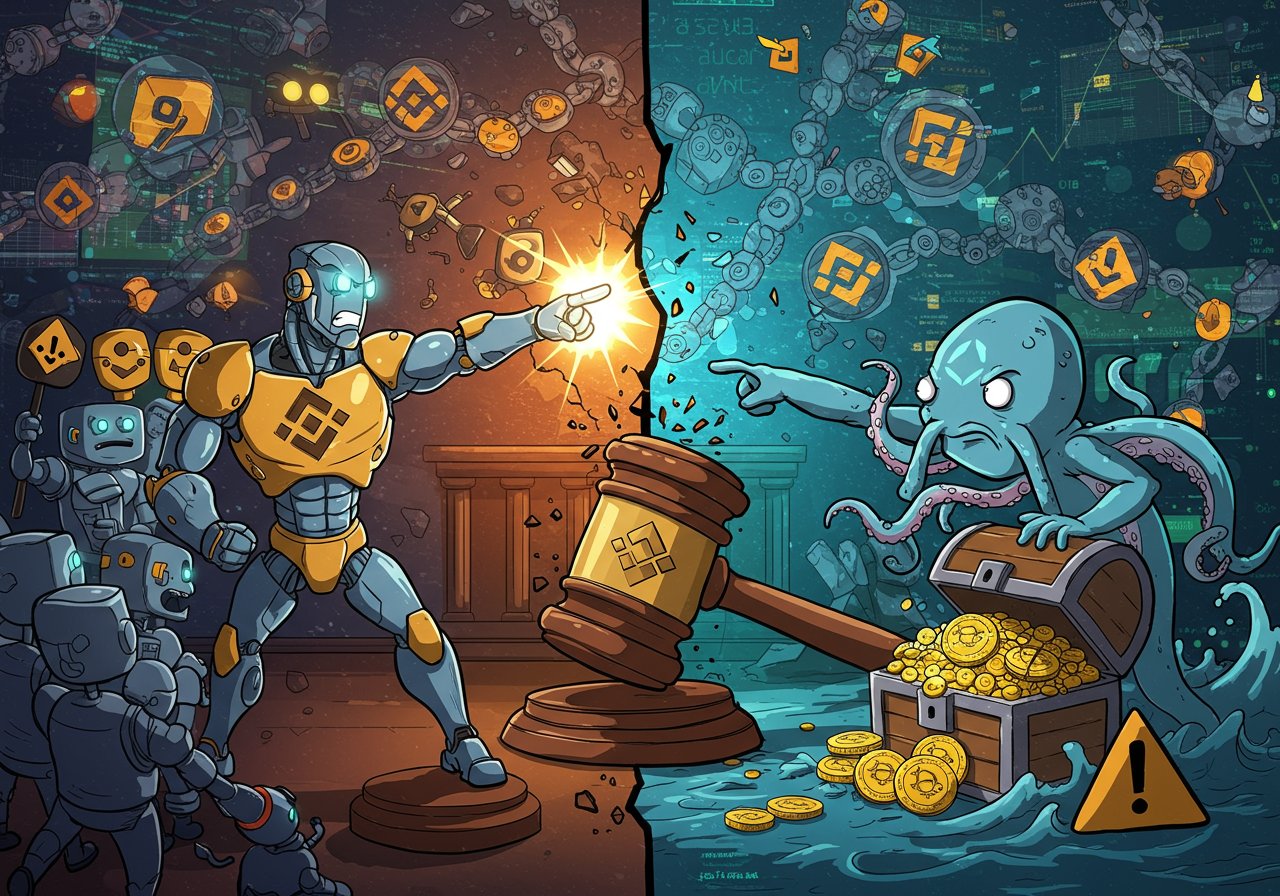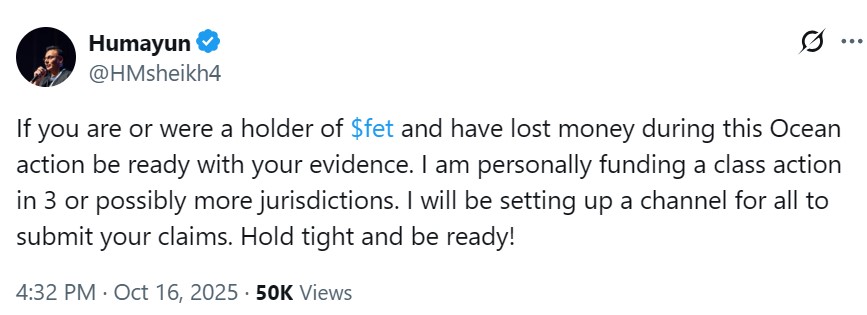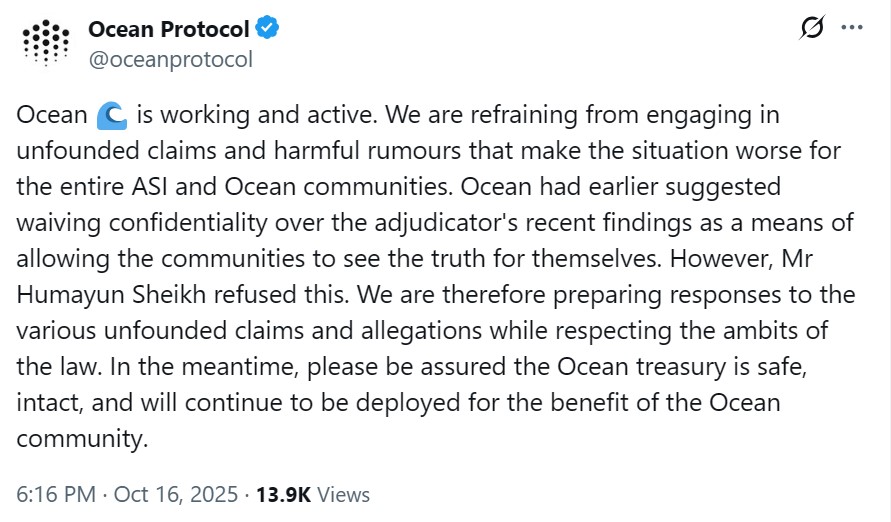
The AI Alliance Rift: Fetch.ai, Ocean Protocol, and the $84 Million Dispute
The nascent Artificial Superintelligence (ASI) Alliance, a collaborative venture aimed at uniting several AI-focused crypto projects, is now embroiled in a bitter feud. At the heart of the controversy lies a dispute between Fetch.ai (FET) and Ocean Protocol, with Binance stepping in with a significant restriction, adding another layer of complexity to the ongoing drama. The core issue centers on the alleged improper handling of Fetch.ai tokens, potentially impacting the value of the combined entity.
The Genesis of the Conflict: Token Movements and Accusations
The primary allegations, spearheaded by Fetch.ai CEO Humayun Sheikh, revolve around the movement of OCEAN tokens, the original token associated with Ocean Protocol, and their subsequent conversion into Fetch.ai’s FET tokens. Sheikh claims that large quantities of OCEAN were minted and transferred before the merger, then converted into FET and moved, without adequate disclosure, to centralized exchanges and market-making firms. He further characterized the actions as potentially constituting a ‘rug pull,’ a serious accusation within the crypto space. These claims are particularly sensitive given the merged structure of the ASI Alliance, where assets and decisions are meant to be managed collaboratively.

Binance‘s Response: A Restriction on Deposits
In the wake of these allegations, Binance has announced it will suspend support for Ocean Protocol (OCEAN) deposits via the ERC-20 network, a move that has added fuel to the fire. While the exchange has cited no specific reason, the timing and the network restriction strongly suggest internal investigations or risk management procedures related to the ongoing dispute. Binance’s decision further underscores the gravity of the situation, as the exchange’s actions are often seen as a signal to the market.
Legal Threats and Counterclaims: A Battle of Words and Evidence
Sheikh has vowed to pursue class-action lawsuits across multiple jurisdictions and has called on Binance, GSR, and ExaGroup to investigate the token transfers. Meanwhile, Ocean Protocol has vehemently denied the allegations, labeling them as “unfounded claims and harmful rumors.” The situation is further complicated by the involvement of an adjudicator, suggesting that a formal legal arbitration is underway, likely related to the framework of the ASI Alliance merger. This escalation highlights the complex challenges of navigating disputes within decentralized projects, where the stakes can be incredibly high.

The Broader Implications: The Future of the ASI Alliance
The ongoing dispute raises crucial questions about the governance and transparency of the ASI Alliance and, by extension, other collaborative AI projects within the crypto space. Investors and token holders are understandably concerned about the potential impact of these accusations. If the allegations are substantiated, it could severely damage the project’s credibility and value. Conversely, if Ocean Protocol can successfully refute these claims, the damage to Fetch.ai and the credibility of its leadership could be substantial. The outcome of this battle will likely shape the future of the ASI Alliance and its ability to compete in the rapidly evolving landscape of AI and blockchain technology.
- Key Takeaway: The feud between Fetch.ai and Ocean Protocol highlights the risks and complexities of collaborative projects in the crypto space.
- Warning: The exchange’s move is a key sign of the serious nature of the dispute.
- Future Outlook: The resolution of this case will set a crucial precedent for future cases of token manipulation.
The complexities of these disputes within the AI and blockchain spheres are a sign of the growing pains in these nascent industries.


